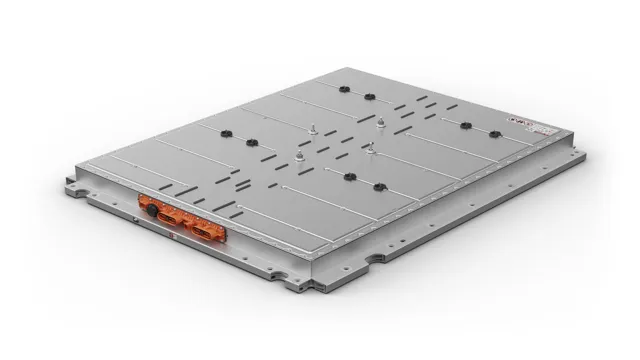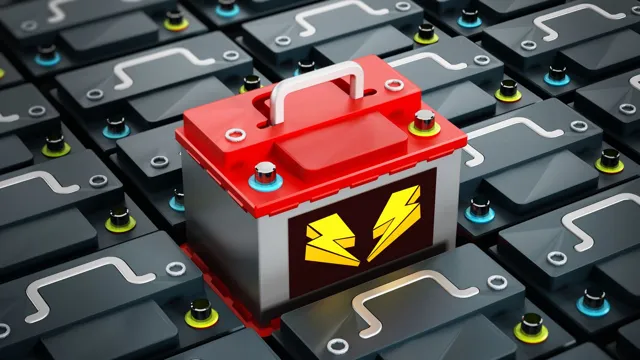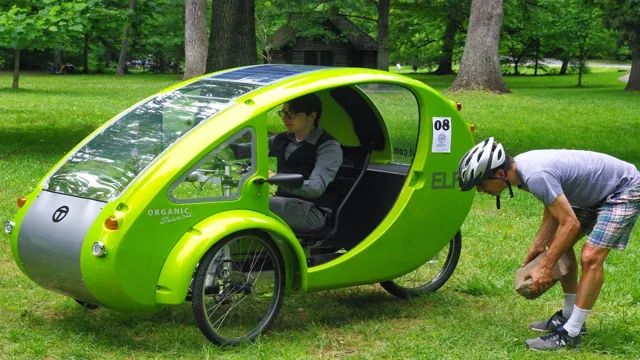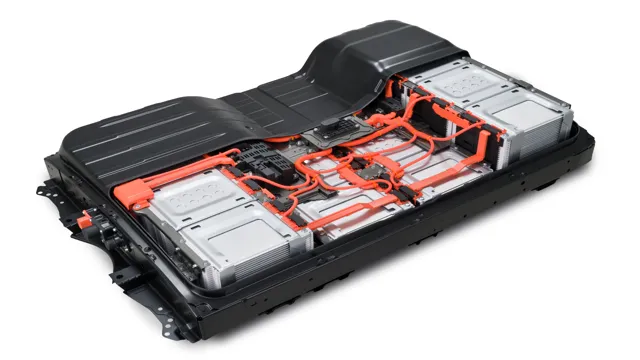Revolutionizing Electric Cars: The Promising Future of Solid-State Batteries
Electric cars have been trending for a while now and have gone far to revolutionize the automobile industry. However, there is always room for improvement, and that’s precisely where solid-state batteries come into the picture. These innovative batteries promise to be the next big thing in electric vehicles, thanks to their stunning performance and impressive range.
But what is a solid-state battery, and how does it benefit electric vehicles? Well, buckle up, because I’m about to give you an in-depth understanding of what you need to know.
What are Solid State Batteries?
Electric car manufacturers are starting to explore the possibilities of solid-state batteries, which promise to revolutionize the way we store and use energy in our vehicles. Unlike conventional lithium-ion batteries, which use a liquid electrolyte to carry ions between the cathode and anode, solid-state batteries use a solid electrolyte that is much less flammable and more energy-dense than its liquid counterpart. This means that solid-state batteries have the potential to offer longer ranges, faster charging times, and improved safety compared to current battery technology.
Additionally, because they are designed to be more compact and lightweight, solid-state batteries could help reduce the overall weight and cost of electric vehicles, making them more affordable and accessible to consumers. While solid-state batteries are still in the development stage, many experts believe that they will be a game-changer for the electric vehicle industry in the years to come.
Explaining the Technology Behind Solid State Batteries
Solid State Batteries Solid state batteries are a new kind of battery technology that could revolutionize the way we power everything from our mobile devices to our electric cars. Unlike traditional batteries, which use liquid electrolytes, solid state batteries use solid electrolytes, which allows for greater energy density and faster charging times. This technology has the potential to make our devices smaller, lighter, and more efficient, while also increasing the range and speed of our electric vehicles.
While solid state batteries are still in the early stages of development, many researchers and companies are working to bring this technology to market as soon as possible. Solid state batteries have the potential to improve the way we use and store energy, ultimately leading to a more sustainable future for all.
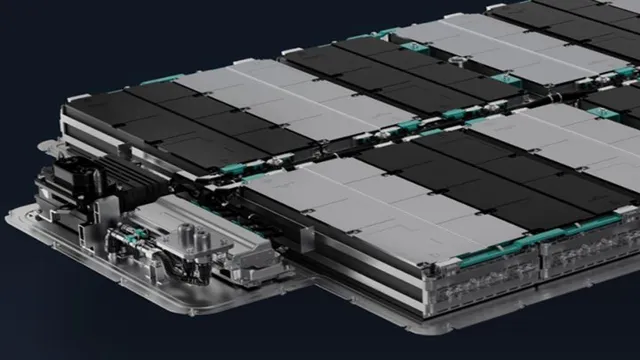
Advantages of Using Solid State Batteries in Electric Cars
Solid state batteries are a new type of battery that is becoming increasingly popular for use in electric cars. Unlike traditional lithium-ion batteries, solid-state batteries do not have liquid or gel electrolytes. Instead, they use solid electrolytes, which provide a number of advantages.
One of the biggest advantages is that solid-state batteries are safer than traditional batteries because they are less likely to catch fire or explode. They also have a longer lifespan than traditional batteries because solid-state electrolytes are more stable and less likely to degrade over time. Additionally, solid-state batteries offer faster charging times, which means that electric cars powered by these batteries can be fully charged in less time than those powered by traditional batteries.
However, solid-state batteries are still relatively new and expensive technology, so it may be some time before they become widely adopted in the automotive industry.
The Future of Electric Cars with Solid State Batteries
The future of electric cars is looking bright with the development of solid state batteries. These batteries are a step up from traditional lithium-ion batteries, with their ability to hold more energy and charge faster. Solid state batteries also eliminate the risk of fire and explosion due to their solid construction that doesn’t require liquid electrolytes.
With solid state batteries, electric cars can go further on a single charge, making them more accessible and practical for everyday use. While the technology is still being improved upon, the potential for solid state batteries to revolutionize the electric car industry is exciting. As more research and development is done, we may soon see a world where electric cars are the norm and solid state batteries are the future.
Current Trends and Development in Solid State Battery Technology
Solid State Batteries Solid state battery technology is rapidly developing and becoming an exciting topic in the world of electric car manufacturers. Many claim that solid state batteries could be the future of electric vehicles and solve some of the biggest problems we currently face when relying on lithium-ion batteries. Solid state batteries use solid electrolytes instead of liquid ones, making them less prone to leaks, fires, and other safety concerns.
They are also expected to offer longer ranges and faster charging times compared to traditional batteries. However, there are still challenges to overcome, such as cost, scalability, and the ability to work at low temperatures. Despite these obstacles, many automakers, including BMW and Toyota, are investing heavily in this technology and striving to make solid state batteries a reality in the near future.
Expected Impact on the Electric Car Industry
Solid state batteries are poised to revolutionize the electric car industry in several ways. First, these batteries have a higher energy density than traditional lithium-ion batteries, which means they can store more energy in a smaller and lighter package. This could lead to longer driving ranges for electric cars and potentially lower costs since manufacturers can use fewer batteries.
Second, solid state batteries are safer than traditional batteries since they don’t use liquid electrolytes that can leak and potentially cause fires. This could increase consumer confidence in electric cars, which is a key hurdle that the industry needs to overcome. Finally, solid state batteries have a longer lifespan than traditional batteries, which means they won’t need to be replaced as often.
This could make owning an electric car even more attractive since it could be more cost-effective in the long run. Overall, the adoption of solid state batteries in the electric car industry is expected to have a significant impact and could be a game-changer for the industry.
Environmental Benefits of Solid State Batteries over Traditional Lithium-ion Batteries
Solid State Batteries, Environmental Benefits, Electric Cars Electric cars are the future of transportation, and solid state batteries have the potential to revolutionize the industry. Unlike traditional lithium-ion batteries, solid state batteries are safer, more durable, and environmentally friendly. They use a solid electrolyte instead of a liquid electrolyte, which eliminates the risk of leakage or explosion.
Plus, they have a longer lifespan and higher energy density, allowing them to store more energy in a smaller space. This makes them ideal for electric vehicles, which require a lot of energy to run. The environmental benefits of solid state batteries are also significant, as they do not contain toxic and flammable materials like traditional batteries do.
This reduces the risk of environmental contamination and makes them easier to recycle. As the world shifts towards sustainable energy, solid state batteries offer a promising solution for powering the electric cars of the future.
Top Electric Cars with Solid State Battery Technology
Electric car battery technology has come a long way in recent years, with one of the most exciting advancements being solid state batteries. These batteries use a solid electrolyte, which offers several advantages over traditional liquid-electrolyte batteries. First, solid-state batteries are much safer, as they don’t carry the risk of leaking or catching fire.
They’re also more energy-dense, which means they can store more energy in a smaller package. And finally, they can charge much faster than traditional batteries. Several major automakers are working on electric cars with solid state battery technology, including Toyota, BMW, and Volkswagen.
While these cars aren’t yet widely available, they hold a lot of promise for the future of electric vehicles and could greatly improve the driving range and performance of these cars.
Comparing Key Features and Performance of Electric Cars with Solid State Batteries
Electric cars with solid state batteries are becoming increasingly popular due to their high energy density and fast charging capabilities. One of the top electric cars with solid state battery technology is the Toyota bZ4X, which is set to be released in 202 It boasts a range of up to 500 km and can be charged in just 10 minutes, thanks to its revolutionary solid state battery technology.
Another electric car that stands out is the Audi E-Tron GT, which has a range of up to 400 km and can be charged to 80% in just 20 minutes. With its sleek and stylish design, this electric car is perfect for those who want to make a statement while contributing to a greener future. However, the Lucid Air is arguably the best electric car with solid state battery technology currently on the market.
With a range of up to 836 km on a single charge, it is truly in a league of its own. It also has a fast charging time, with 20 minutes of charging providing up to 482 km of range. As the technology continues to improve, we can expect electric cars with solid state batteries to become even more impressive and efficient in the years to come.
Availability and Pricing of Electric Cars with Solid State Batteries
Electric cars with solid state batteries. Electric cars have become increasingly popular over the years as a more sustainable and cost-effective option for transportation. With advancements in technology, electric cars with solid-state batteries have hit the market.
These batteries are more efficient, have a longer life span, and are safer to use than traditional lithium-ion batteries. The top electric cars with solid-state batteries include the Fisker EMotion, Toyota Sora, and Volkswagen ID Space Vizzion. However, availability of these cars with solid-state batteries is limited and only available in certain regions.
Additionally, pricing of these electric cars can be higher compared to traditional electric cars. Despite the limited availability and higher pricing, the growing demand for sustainable transportation indicates a bright future for electric cars with solid-state batteries.
Conclusion
In conclusion, the development of solid state batteries for electric cars is a game-changer. Without the limitations of liquid electrolytes, these batteries offer higher energy density, faster charging times, and increased safety. It’s like going from a flip phone to a smartphone – a revolutionary upgrade that we didn’t even know we needed until it was introduced.
So, get ready to say goodbye to the days of range anxiety and hello to a completely electrifying driving experience!”
FAQs
What is a solid-state battery for electric cars?
A solid-state battery is a type of battery that utilizes solid electrolytes instead of liquid or gel electrolytes. It is believed to be a more efficient and safer alternative to traditional batteries used in electric cars.
How does a solid-state battery differ from a traditional lithium-ion battery?
Solid-state batteries differ from traditional lithium-ion batteries in their electrolyte composition. While conventional lithium-ion batteries use liquid or gel electrolytes, solid-state batteries use solid electrolytes. Solid-state batteries can also achieve higher energy density and have a longer life cycle compared to lithium-ion batteries.
What are the benefits of using a solid-state battery in electric cars?
Solid-state batteries offer several benefits to electric car manufacturers, including higher energy density, faster charging times, and lower risk of thermal runaways and fires. They also have a longer lifespan and perform better in extreme temperatures than traditional lithium-ion batteries.
Are there any drawbacks to using solid-state batteries in electric cars?
One of the main drawbacks of solid-state batteries is their currently high cost of production. They are also still in the development stage and have not yet been fully tested in real-world conditions. Additionally, current manufacturing techniques are not yet capable of producing solid-state batteries at scale, which could limit their availability in the near future.
